There Is No Honor In Honor Killing
BBC News reported:
“According to the independent Human Rights Commission of Pakistan (HRCP), at least 109 people were killed for “honour” during just four months, between January and April this year.
Human rights monitors say the incidence of such killings is on the rise. The HRCP reported 1,100 honour killing incidents in 2015, 1,105 in 2014 and 869 in 2013.”
On Sunday, June 19, 2016, I posted a project’s named, “Peace with Nature”, which utilized my photos from our backyard garden, downtown Newark, New Jersey, during the month of May and June, 2016. I also stated, “Let Nature Heal Us”, which is a tribute to sadness of the killings in the United State of America. It was A Father’s Day, so I also wished my husband, son-in-law, his father and all fathers, “A Happy Father’s Day”. At the end of the project I wrote a poem’s name “MY GOOD FATHER, HAPPY FATHER’S DAY”, which I wrote about fathers who killed their daughter in the name of Honor Killing.
This morning I planned to post one of my finished artwork projects from a high school in Newark on Google+. Before I checked my website I visited BBC News website I found the article that just posted one hour ago “Qandeel Baloch: Pakistan social media celebrity ‘killed by brother’ (Sat 7.16.2016)” Pakistani social media celebrity Qandeel Baloch has been killed by her brother in an apparent ‘honour killing’ in the province of Punjab, police say.———–
I am sorry that I have to post this kind of inhumane behavior on my website. I felt responsible to let more people know and help to raise awareness of this kind of believe in the twenty first century that still exists. Only two days ago on Friday, July 17, 2016 Dr. Neena M. Shah, physician and her mother, Mrs. Bharti M. Shah and our long time friend Joanne Leone visited us. I talked to Dr. Shah and her mother who came from India about Honor Killing in India, Pakistan and other countries.
There will be no peace in the world if there is still this kind of believe. It is inhumane; all humans have to be educated to understand that any form of abuse from one human to another is unacceptable for civilized society.
MY GOOD FATHER, HAPPY FATHER’S DAY
I miss my father
Who passed away twenty years ago
I miss him everyday
Especially the day that
The world honor fatherhood
I wrote a letter telling my parents
I found my true love
We love each other
We decided to marry
My parents were joyous
Father and mother gave you life
They are happy to see you find love
And build a new family
They are joyful with your happiness
Daddy I miss you!!!
I love you dearly!!!
Please do not kill me!!!
My husband is a good man!!!
He loves me!!!
And I love him!!!
We are going to have another life!!!
We will have grandchild for you!!!
Daddy!!!
Please do not kill me!!!
Please good father
You are a good human being
You created life
Your daughter has become
An individual person
You do not own this life you created
You nurtured her
And you watched her grow
To become a good human being
Please abolish Honor Killing!!!
You gave life but do not destroy it
The world is not flat
The world is a sphere
Some of what we believed before is good
And some is bad
Honor Killing is revenge
Revenge is war
Revenge is killing
Revenge is unhappiness
Please seek Peace
Make peace not war
Honor Killing is inhumane
Please do not do it
Abolish Honor Killing Good Father
“Please do not kill me Daddy!!!”
“I love you!!!”
“Have A Happy And Peaceful Father’s Day Daddy”
Ing-On Vibulbhan-Watts, Saturday, June 18, 2016, 11: 19 am
The following are some of the articles BBC News reported on the subject of Honor Killing:
Qandeel Baloch: Pakistan social media celebrity ‘killed by brother’
The link is: https://www.bbc.com/news/world-asia-36814258
- 1 hour ago
- From the section Asia
Media caption Qandeel Baloch had a reputation for being Pakistan’s first social media celebrity
Pakistani social media celebrity Qandeel Baloch has been killed by her brother in an apparent ‘honour killing’ in the province of Punjab, police say.
Ms Baloch, 26, recently caused controversy by posting controversial pictures of herself on social media, including one alongside a Muslim cleric.
Police say she was strangled to death.
Cases of women being killed for ‘dishonouring’ their family are commonplace in Pakistan.
Qandeel Baloch became a household name for posting bold, sometimes raunchy, photographs, video and comments.
Parents detained
Ms Baloch’s parents told The Express Tribune that she was strangled to death on Friday night following an argument with her brother.
They said her body was not discovered until Saturday morning. Her parents have been taken into custody, the Tribune reported.
Ms Baloch had gone to Punjab from Karachi because of the threat to her security, police say.
Image caption Ms Baloch was admired by liberals but reviled by conservatives Image caption Ms Baloch appeared alongside a Muslim cleric in images uploaded onto social media
Image caption In a recent interview she was bitterly critical of Pakistan’s patriarchal society
“[Her] brothers had asked her to quit modelling,” family sources quoted by the Tribune said.
Sources quoted by the newspaper said that Wasim was upset about her uploading controversial pictures online and had threatened her about it.
Police said he had not been arrested and was on the run.
‘No woman is safe’
Ms Baloch’s murder was condemned by filmmaker Sharmeen Obaid-Chinoy, whose documentary A Girl in the River: The Price of Forgiveness won an Oscar earlier this year.
“I really feel that no woman is safe in this country, until we start making examples of people, until we start sending men who kill women to jail, unless we literally say there will be no more killing and those who dare will spend the rest of their lives behind bars,” she told the AFP news agency.
Why some say death is ‘good news’, by BBC World Service South Asia editor Jill McGivering
Qandeel Baloch used social media to find fame and the reactions there showed the feelings she inspired, from admiration to disgust.
Some called her death “good news” and even praised her suspected killer. Others said it was wrong to condone her murder, even if she was flawed. Some showed outright support.
Qandeel Baloch has been dubbed Pakistan’s Kim Kardashian. There are comparisons: the provocative selfies, the pursuit of celebrity, the controversial rise to notoriety.
But in Pakistan, women, especially poor ones, still lack basic rights, from schooling to choosing a husband and violence against them is rife. The country struggles with sexuality and especially with “immodest” women.
The fact that many of Qandeel’s videos went viral suggests a titillating fascination with confident female sexuality – along with fear of its power and of her assertion of independence. However she lived her life, tweeted one, it was her life.
Ms Baloch rose to fame in Pakistan in 2014 when a video of her pouting at the camera and asking “How em looking?” went viral.
In a recent interview she was bitterly critical of Pakistan’s patriarchal society and described herself as a leading exponent of girl power.
While many younger people saw her as a cultural icon and hailed her liberal views, she was also subjected to frequent misogynist abuse online.
Her request for better security was ignored by the government, Dawn reported, despite pleas made three weeks ago to the interior minister and other senior officials.
Hundreds of women are murdered every year in Pakistan in so-called honour killing cases.
Pakistan honour killings on the rise, report reveals
1 April 2016
From the section Asia
Activists of The Pakistan People’s Party hold placards at rally to mark International Women’s Day in Karachi on March 8, 2016Image copyright AFP
More women in Pakistan are demanding an end to gender-related violence
Nearly 1,100 women were killed in Pakistan last year by relatives who believed they had dishonoured their families, the country’s independent Human Rights Commission says.
In its annual report the commission said 900 more women suffered sexual violence and nearly 800 took, or tried to take, their own lives.
In 2014 about 1,000 women died in honour-related attacks and 869 in 2013.
Correspondents say a large number of such crimes go unreported in Pakistan.
Prime Minister Nawaz Sharif has said there is no place in Islam for killing in the name of family honour.
“The predominant causes of these killings in 2015 were domestic disputes, alleged illicit relations and exercising the right of choice in marriage,” the report said.
Most of the 1,096 victims were shot, the report said, but attacks with acid were also common.
Protest against killing of Farzana Parveen, 2014Image copyright AFP
The 2014 killing of Farzana Parveen by her relatives in Punjab triggered protests
Among the cases highlighted in the report are a man who shot dead his two sisters in Sargodha, Punjab, because he believed they had “bad character” and three teenage girls killed by their male cousin for “dishonouring” their family in Pakpattan, Punjab.
The report said that 88 men were also the victims of honour killings last year.
In February, Punjab, the country’s largest province, passed a landmark law criminalising all forms of violence against women.
However, more than 30 religious groups, including all the mainstream Islamic political parties, have threatened to launch protests if the law is not repealed.
Religious groups have equated women’s rights campaigns with promotion of obscenity. They say the new Punjab law will increase the divorce rate and destroy the country’s traditional family system.
Among the most infamous cases of honour killing in Pakistan was the stoning to death of Farzana Parveen in 2014 outside the High Court in Lahore. She had married against her family’s wishes.
Her father, brother, cousin and former fiance were all found guilty of murder. Another brother received a 10-year jail sentence.
The issue of honour killings in Pakistan inspired a documentary film, A Girl in the River – The Price of Forgiveness, which won its creator, Sharmeen Obaid Chinoy, an Oscar at this year’s Academy Awards.
In her acceptance speech, she said it was after seeing the film that Prime Minister Nawaz Sharif had vowed to change the law on honour killings.
Pakistan: Woman who rejected marriage offer burnt to death
https://www.bbc.com/news/world-asia-36425946
- 1 June 2016
- From the section Asia
Image caption Maria Sadaqat’s body was taken to her village for her funeral on Wednesday
A Pakistani woman who was set on fire for refusing a marriage proposal has died of her injuries.
Maria Sadaqat, a young schoolteacher, was attacked in her home by a group of men on Sunday and died in hospital in Islamabad on Wednesday.
Her family say she had turned down a marriage proposal from the son of the owner of a school she had taught at.
Campaigners say attacks on women who refuse marriage proposals are common in Pakistan.
Maria Sadaqat suffered burns all over her body and took three days to die
Punjab Chief Minister Shahbaz Sharif launched an immediate investigation into the killing, which will report in two days.
Maria’s father has said the school owner was one of the men who attacked his daughter. Police told the BBC that the men beat her and doused her in petrol before setting her alight near the hill resort of Murree, not far from the capital.
She suffered serious burns on nearly all of her body. Local media report that she had 85% burns.
Ms Sadaqat’s maternal aunt, Aasia, told the BBC the trouble started when the school’s owner asked for her niece to marry his son.
She said: “She was teaching at their school. They sent in the proposal six months ago but the guy was already married and had a daughter. They wanted her to run the school after marrying the son of the owner of the school.
“Her father refused the proposal and they took the revenge by doing this.”
Panic and anger in Murree: The BBC’s Iram Abbasi reports
“They have taken away my universe, why was she brutally murdered? How can they not feel any compassion?” Maria’s mother told me, while waiting for her daughter’s body.
We were outside a local hospital in Murree. It is a resort town with a 69% literacy rate which, even though high for a rural area, can still not combat the menace of violence against women.
Life here is strictly dictated by religious norms.
After this incident, the sleepy hill town is engulfed with panic and anger. The elders are trying to influence the victim’s father to stay quiet as this is a matter of his honour.
One of the elders whispered in his ear “your daughter is gone and they are going to malign her and your family’s honour the more you highlight it in the media.”
The family is being pressured by fellow villagers to settle the case out of court.
‘Light beatings’
Image copyright AFP Image caption Activists demanded an end to gender-related violence on International Women’s Day in March
Nearly 1,100 women were killed by relatives in Pakistan last year in so-called honour-killings, the country’s independent Human Rights Commission says.
Violence against women by those outside the family is also common in Pakistan and is often connected to a perceived slight, as may have occurred in Maria Sadaqat’s case.
Police said earlier this year that village elders had ordered the murder of a teenage girl because she helped a friend to elope.
Prime Minister Nawaz Sharif said in April: “The predominant causes of these killings in 2015 were domestic disputes, alleged illicit relations and exercising the right of choice in marriage.”
Campaigners say most “honour killings” are not reported.
The BBC’s M Ilyas Khan in Islamabad says that in many cases, including those reported to the police, relatives hoping to keep the family name out of the news prefer to make out-of-court settlements and therefore there are no convictions.
Under Islamic laws introduced in the 1980s the victim’s family can pardon the perpetrator in return for money or other considerations.
In February, Punjab province, where the attack on Miss Sadaqat happened, passed a landmark law criminalising all forms of violence against women.
However, more than 30 religious groups, including all the mainstream Islamic political parties, threatened to launch protests if the law was not repealed.
The Council of Islamic Ideology proposed making it legal for husbands to “lightly beat” their wives. It came under fire as a result.
Religious groups have equated women’s rights campaigns with promotion of obscenity. They say the new Punjab law will increase the divorce rate and destroy the country’s traditional family system.
Pakistan: Mother ‘burnt her daughter to death’ over marriage
https://www.bbc.com/news/world-asia-36212080
- 8 June 2016
- From the section Asia
Zeenat RafiqPic her marriage certificate, wed Hassan Khan last week
Police in the Pakistani city of Lahore have arrested a woman suspected of murdering her daughter for marrying without family consent.
Police say the body of Zeenat Rafiq shows signs of torture. She was doused with fuel and set alight.
Her mother Parveen is accused of luring her back from her in-laws.
It is the third such case in a month in Pakistan, where attacks on women who go against conservative rules on love and marriage are common.
Last week a young school teacher, Maria Sadaqat, was set on fire in Murree near Islamabad for refusing a marriage proposal. She died of her injuries.
Image caption Maria Sadaqat suffered burns all over her body and died three days later
A month earlier village elders near Abbottabad ordered the murder of a teenage girl who was burnt to death because she helped a friend to elope, police said.
Zeenat Rafiq, who was 18, had been burnt and there were signs of torture and strangulation, police told BBC Urdu. A post mortem examination may establish if she was still alive when she was set on fire.
Police Superintendent Ibadat Nisar said officers were looking for her brother who is “on the run”. Her mother was found in the house with the body.
“Her mother has confessed to the crime but we find it hard to believe that a 50-year-old woman committed this act all by herself with no help from the family members,” he said.
Neighbours contacted authorities after hearing screaming, but Ms Rafiq was already dead by the time police arrived, BBC reporter Saba Eitizaz says.
Image caption Hassan Khan said his wife’s family had “lured her back”, promising a wedding reception
Ms Rafiq and her husband, Hassan Khan, married a week ago through the courts after eloping. They went to live with his family.
“When she told her parents about us, they beat her so severely she was bleeding from her mouth and nose,” Mr Khan told BBC Urdu.
“Her family lured her back, promising reconciliation and a proper wedding reception. She was afraid, she said ‘they are not going to spare me’. She didn’t want to go but my family convinced her. How were we to know they would kill her like this?”
Attitudes ‘unchanged’
Nearly 1,100 women were killed by relatives in Pakistan last year in so-called honour-killings, the independent Human Rights Commission of Pakistan (HRCP) says. Many more cases go unreported.
Violence against women by those outside the family is also common.
Najam U Din, a joint director of the HRCP, said that societal attitudes had not changed in line with greater education and freedom for young women.
“So when women become more assertive, more reluctant to be content with submissive survival within the family – for example when they insist on studying further, or when they want to take independent decisions about themselves – then the society does not allow it.”
Image copyright AFP Image caption Activists demanded an end to gender-related violence on International Women’s Day in March
Protests over new law
Punjab province, where the two latest attacks happened, passed a landmark law in February criminalising all forms of violence against women.
However, more than 30 religious groups, including all the mainstream Islamic political parties, threatened to launch protests if the law was not repealed.
The Council of Islamic Ideology, which advises the government, then proposed making it legal for husbands to “lightly beat” their wives. It was criticised as a result.
Religious groups have equated women’s rights campaigns with promotion of obscenity. They say the new Punjab law will increase the divorce rate and destroy the country’s traditional family system.
Pakistan ‘honour’ killing: Why clerics call may fall on deaf ears
By M Ilyas Khan
https://www.bbc.com/news/world-asia-36542285
BBC News, Islamabad
15 June 2016
From the section Asia
Share
Protest against killing of Farzana Parveen, 2014Image copyright AFP
Image caption
The 2014 killing of Farzana Parveen by her relatives in Punjab triggered protests
The Council of Islamic Ideology (CII) in Pakistan has declared that killing in the name of family honour is un-Islamic and against the law. The group, which advises the government on religious aspects of law and society, issued its statement after a recent spate of killings shocked many in Pakistan and around the world. Will anyone listen?
What did the clerics say?
The Council of Islamic Ideology – which came under fire last month for suggesting husbands should be allowed to lightly beat their wives – said it had declared such killings to be un-Islamic in 1999, and made clear it was restating its position following a spate of killings in recent weeks.
Council of Islamic Ideology chairman Maulana Muhammad Khan Sherani speaks to journalists in Islamabad on 26 May 2016Image copyright FAROOQ NAEEM/GETTY
Image caption
Council of Islamic Ideology chairman Maulana Muhammad Khan Sherani speaks to journalists in Islamabad
A working group formed to look into the matter has recommended that while “adultery, obscenity and immodesty are grave sins and Islam prescribes harsh punishments for them, it does not allow an individual to act in an extra-judicial manner”.
The CII said it was up to the courts to declare an individual guilty or innocent.
Its statement says that anyone guilty of such killing should be tried under a range of existing laws that cover different categories of murder. These laws, it says, are in conformity with Islamic teachings and therefore no new legislation is required.
Why now?
There have been at least four cases in the past month in which a woman was killed in a marital dispute. It is alleged the murders were carried out by family members or relatives of a rejected suitor, either on their own or following the verdict of local elders.
Last week a young woman, Zeenat Rafiq, was allegedly burnt to death in Lahore by her mother for marrying without family consent, triggering widespread anger.
Hassan Khan shows the picture of his wife Zeenat Rafiq, who was burned alive, allegedly by her mother, on a mobile phone at his home in Lahore, Pakistan Wednesday, June 8, 2016.Image copyright AP
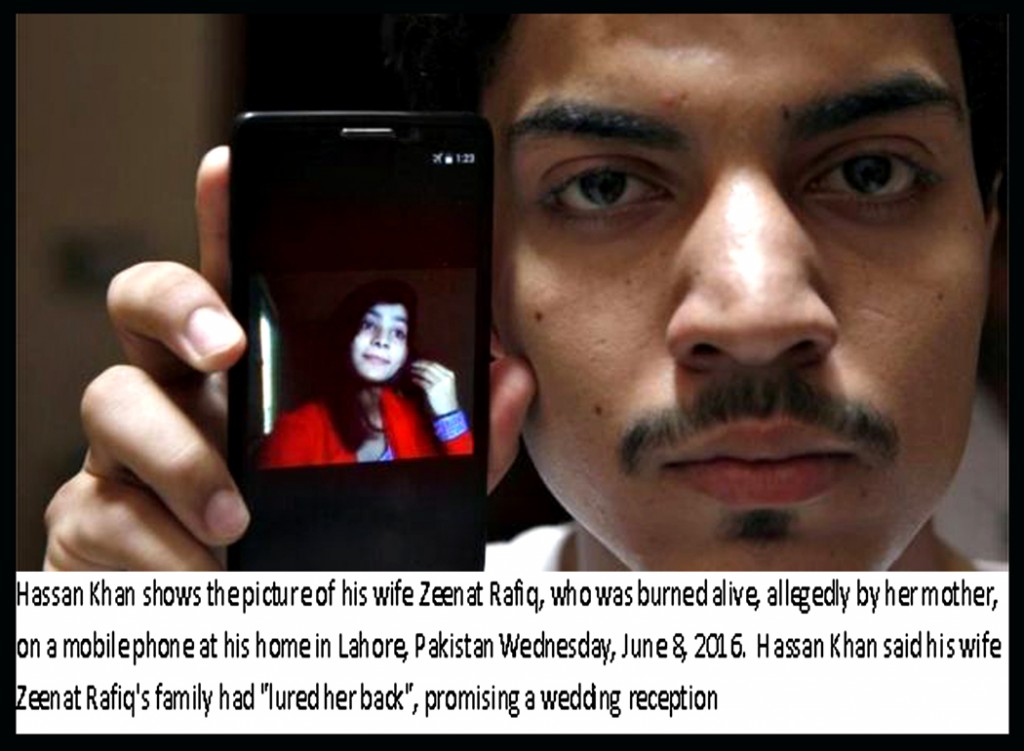 Hassan Khan said his wife Zeenat Rafiq’s family had “lured her back”, promising a wedding reception
Hassan Khan said his wife Zeenat Rafiq’s family had “lured her back”, promising a wedding reception
A week earlier school teacher Maria Sadaqat was set on fire in Murree near Islamabad for refusing a marriage proposal. She died of her injuries.
And last month a teenager was burnt to death near Abbottabad on the orders of village elders because she helped a female friend to elope, police said.
On Sunday, ahead of the CII statement, a group of Pakistani clerics issued a fatwa, or religious ruling, declaring honour killing to be against the teaching of Islam.
How bad is Pakistan’s honour killing problem?
According to the independent Human Rights Commission of Pakistan (HRCP), at least 109 people were killed for “honour” during just four months, between January and April this year.
Human rights monitors say the incidence of such killings is on the rise. The HRCP reported 1,100 honour killing incidents in 2015, 1,105 in 2014 and 869 in 2013.
Increased media coverage may be one reason but changing lifestyles amid continuing social conservatism are also a major factor.
For example, women’s education and their exposure to changing lifestyles and fashion in the media have been growing. Mobile phones and the internet have also empowered many women.
But social norms continue to prevent them from practising this newfound liberation.
Who carries out honour killings?
In the overwhelming majority of cases, the killers are often close relatives – a brother, father, cousin, even a mother, or a maternal or paternal uncle.
Rukhsana and her husband Mohammad,
Rukhsana Bibi eloped with Mohammad Yunus – he was killed while she survived
Most killings take place after the woman concerned is accused of having a pre-marital or extra-marital affair, marries a man of her choice despite her family’s opposition, or refuses a marriage proposal brought by her family.
What are the legal obstacles to prosecutions?
Since honour killings are largely a family affair, most cases go unreported – so police rarely make arrests.
Even in the reported cases the families involved often reach an out-of-court settlement and the alleged killers walk free.
Under a 1980s law the next-of-kin of the victim have the right to pardon the person accused of killing them.
Attempts to introduce stricter laws have often been abandoned following opposition from religious lobbyists.
A law passed by the Punjab parliament in February which criminalised all forms of violence against women has still not been enacted after the CII said it violated Islamic teachings.
Are there cultural reasons too?
There is the sanction of society. Honour killing is a function of culture, and so it cuts across religions.
One example is the recent murder of a Christian teenage girl in Sialkot. The police said that Anum Masih wanted to marry a Christian neighbour but her family was opposed to the proposal.
On Sunday morning, her 23-year-old brother, Saqib Masih, smashed her head with a log, police said.
In an article published in Dawn newspaper, Lahore-based intellectual Mushtaq Soofi explained the phenomenon by linking it to the origin of private property and the concomitant evolution of modern family in societies that have not progressed beyond feudal ethics.
“Once consigned to the household, a woman was gradually reduced to a piece of property,” he wrote. “And property if left unguarded is taken by someone else.”
This, he said, was also “the secret of endogamous marriage”.
Women also needed to be “monitored and controlled” because of their reproductive power.
“She is considered a machine that makes men,” Mushtaq Soofi added. “If she goes off with a man not accepted by her family, she in fact creates the male competitors who would challenge the family muscle.”
Pakistani filmmaker on Oscar hopes
https://www.bbc.com/news/world-asia-35634604
23 February 2016 Last updated at 00:21 GMT
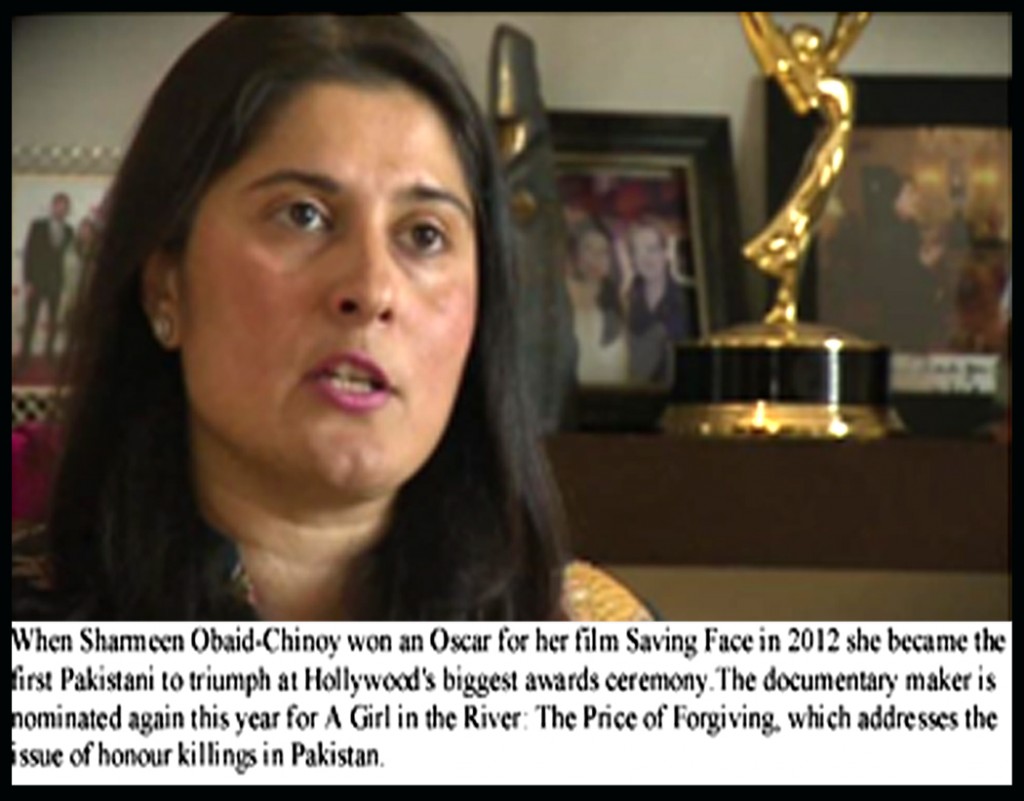 When Sharmeen Obaid-Chinoy won an Oscar for her film Saving Face in 2012 she became the first Pakistani to triumph at Hollywood’s biggest awards ceremony.
When Sharmeen Obaid-Chinoy won an Oscar for her film Saving Face in 2012 she became the first Pakistani to triumph at Hollywood’s biggest awards ceremony.
The documentary maker is nominated again this year for A Girl in the River: The Price of Forgiving, which addresses the issue of honour killings in Pakistan.
Sharmeen Obaid-Chinoy explained to BBC News what drives her to make the films she does.
Thanks to BBC News organization reported this news to the world population.
For more information please visit BBC News as the following links:
Video Qandeel Baloch: Pakistani social media celebrity defies threats
Pakistan honour killings on the rise, report reveals
Pakistan ‘honour’ killing: Why clerics’ call may fall on deaf ears
Pakistan: Woman who rejected marriage offer burnt to death
Pakistan elders ‘ordered girl’s killing’ in Abbottabad
Pakistan: Mother ‘burnt her daughter to death’ over marriage
Four sentenced to death for Pakistan ‘honour killing’
Pakistani women shot in ‘honour killings’
Pakistan acid attack parents ‘feared dishonour’
Pakistan sectarian bus attack in Kohistan kills 18
Video Murders treated as honour killing
Peace with Nature
https://ingpeaceproject.com/2016/06/19/peace-with-nature/
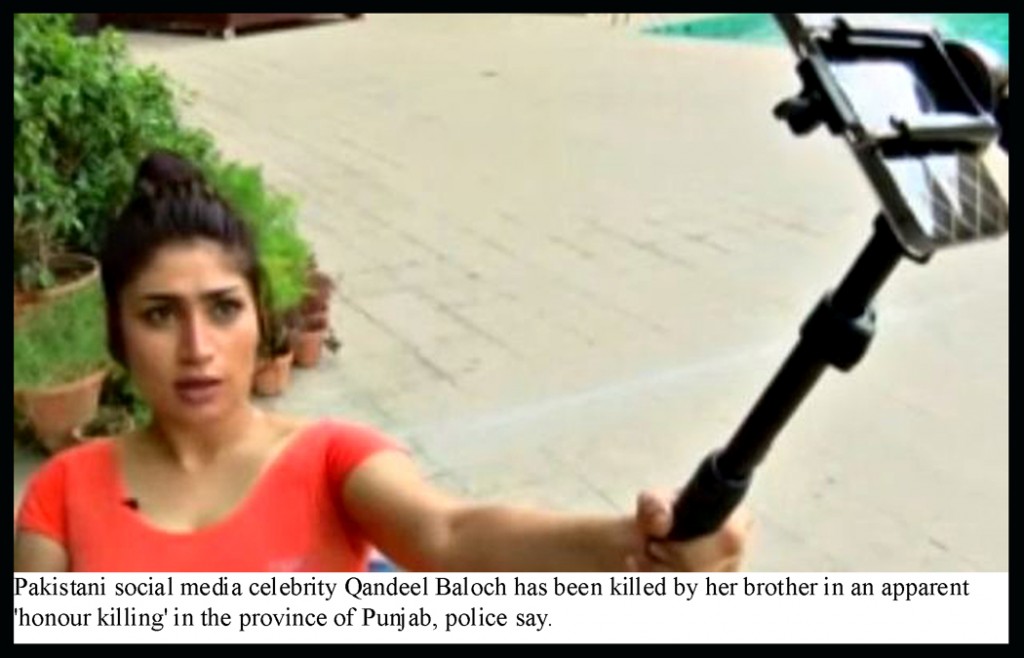
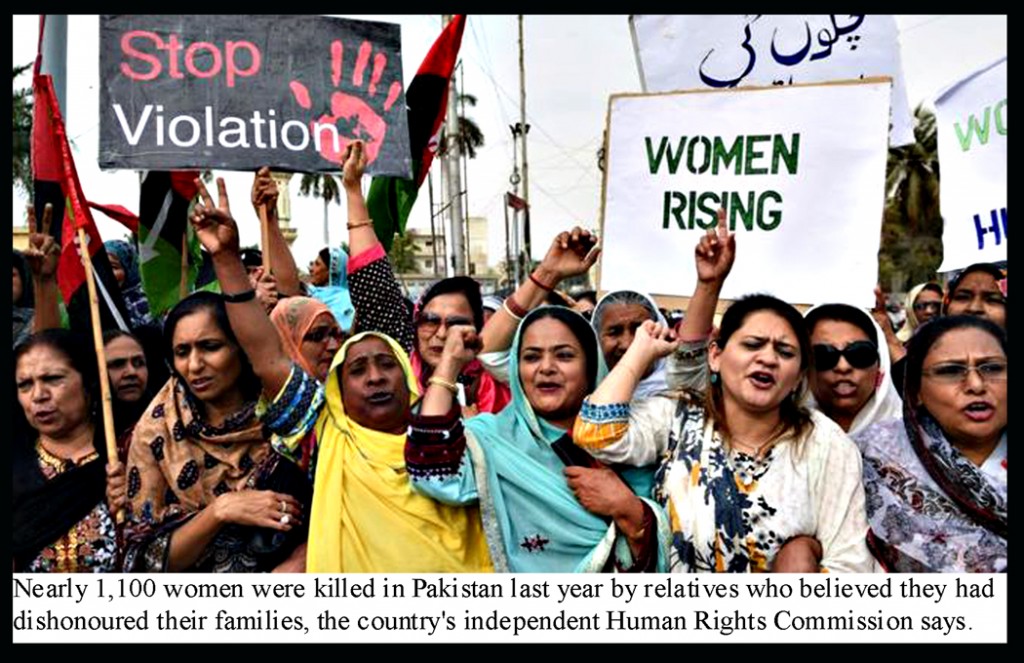
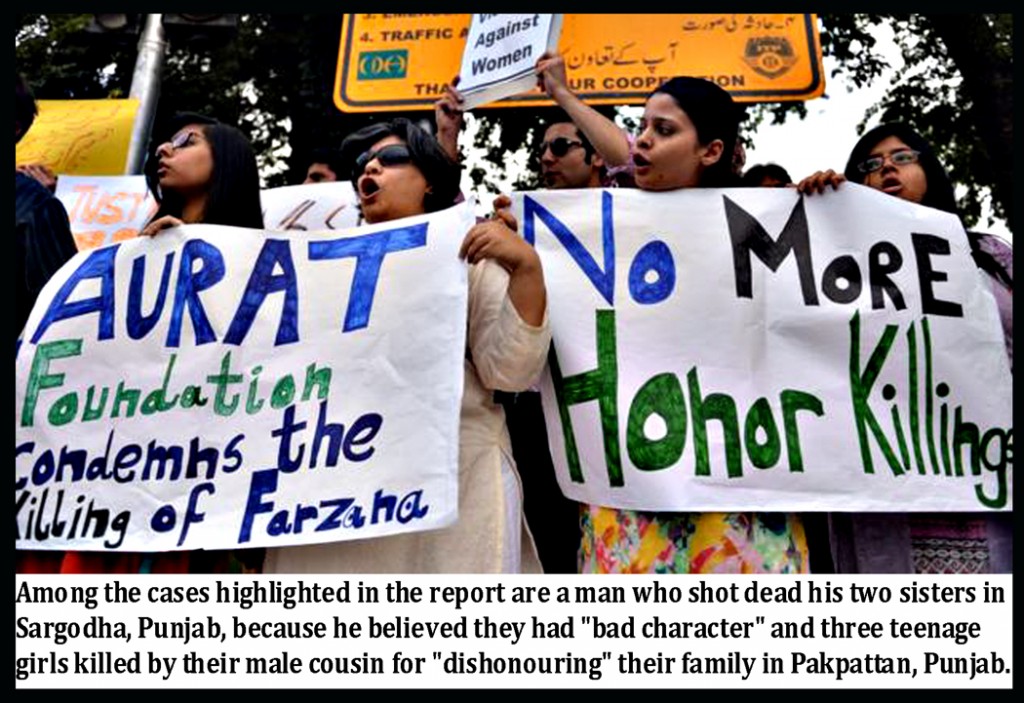
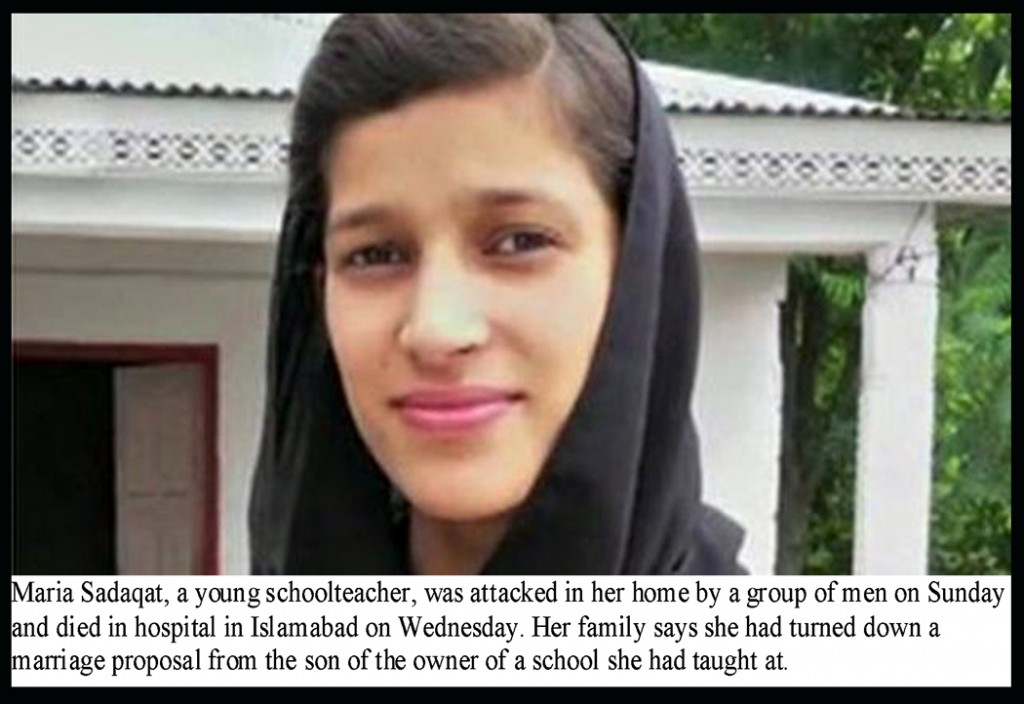
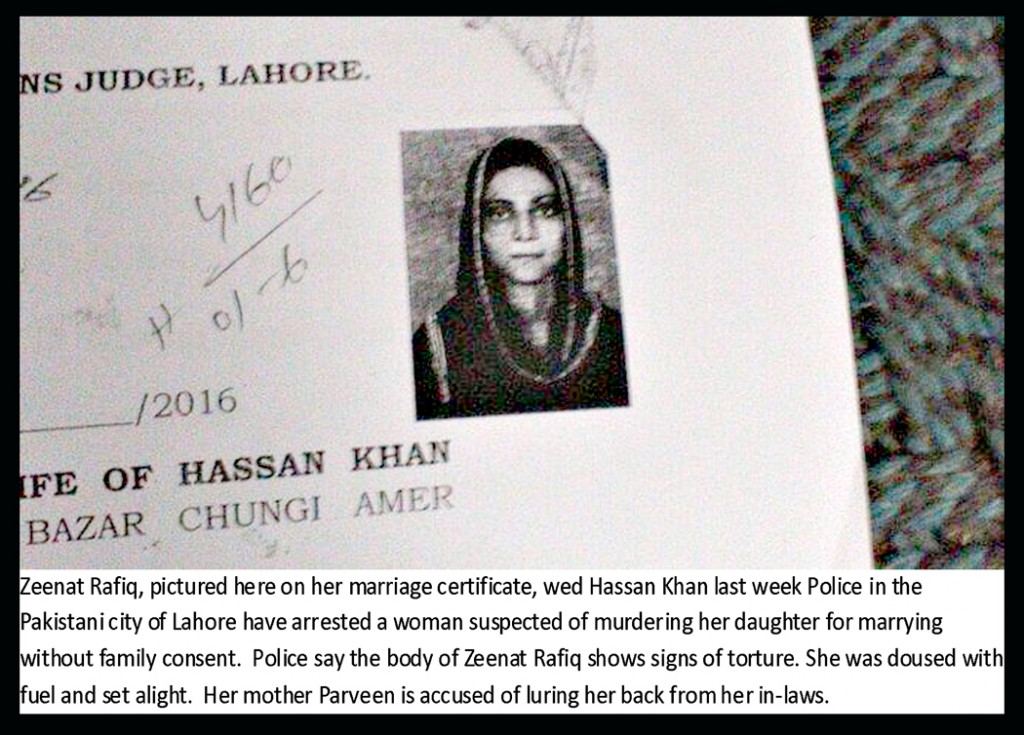
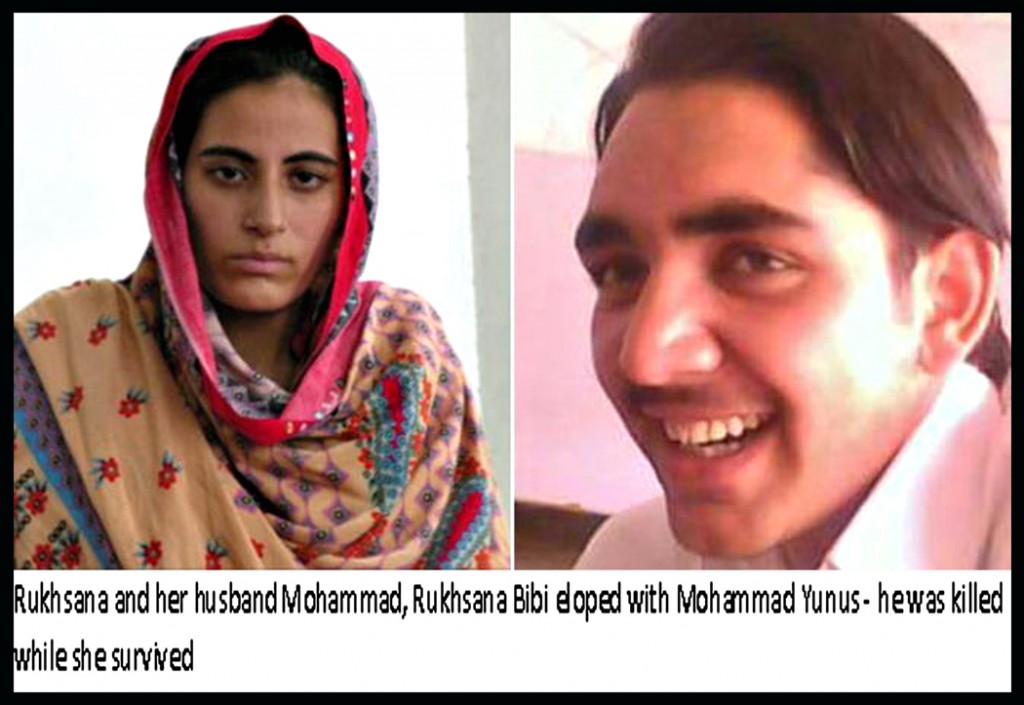
Leave a Reply